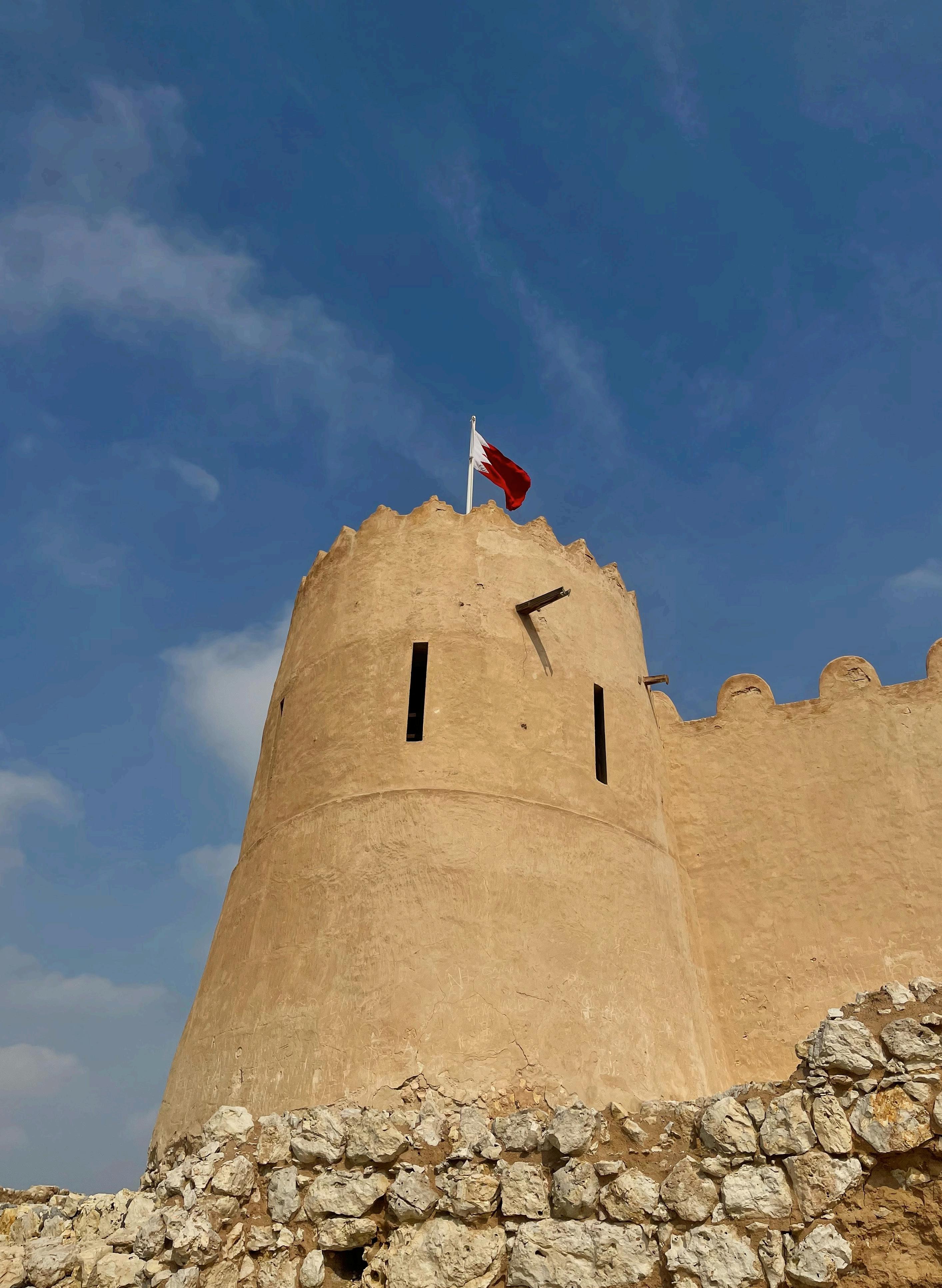




At the American University of Bahrain, our approach fosters interaction and collaboration among students, faculty and the professional community. AUBH Students are presented with opportunities to realize their professional and personal goals, through an engaging student-centric environment, aiming to equip them with the skills and knowledge to unlock their tomorrow. Admissions are open for the 2023 - 2024 academic year.
Deadline for admissions is September 7, 2023.

KNOWLEDGE IS POWER
Publisher & Editor in Chief Nicholas C. Cooksey
Editorial Deepika Rao
Editorial Contributors Vinita V Andrea Stephanie Raj
Sales & Business Development Charlie Cooksey
Layout Designs James Dhanraj
Admin & Finance Nikesh Pola
Photography Angelo Jose A Fadhel Yusuf
For advertising contact Charlie Cooksey +973 3652 0004 charlie@gulf-insider.com
Published by:
P.O. Box 26810, Kingdom of Bahrain Tel: +973 1700 4575 Fax: +973 1772 1722
Printed at Awal Press, Kingdom of Bahrain.



Registered with Ministry of Information approval no. TFI-431©. No part of this publication may be reproduced in any manner without the written permission of the publisher. All Rights Reserved. Views expressed in this magazine are not necessarily those of the publisher.
Cover Image: Raeda Alkhalaifat
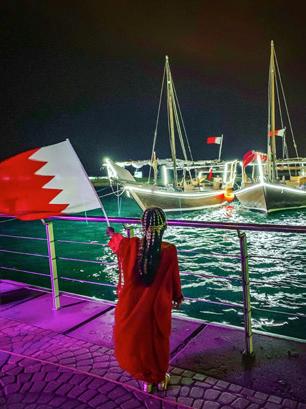



SOCIAL MEDIA MARKETING
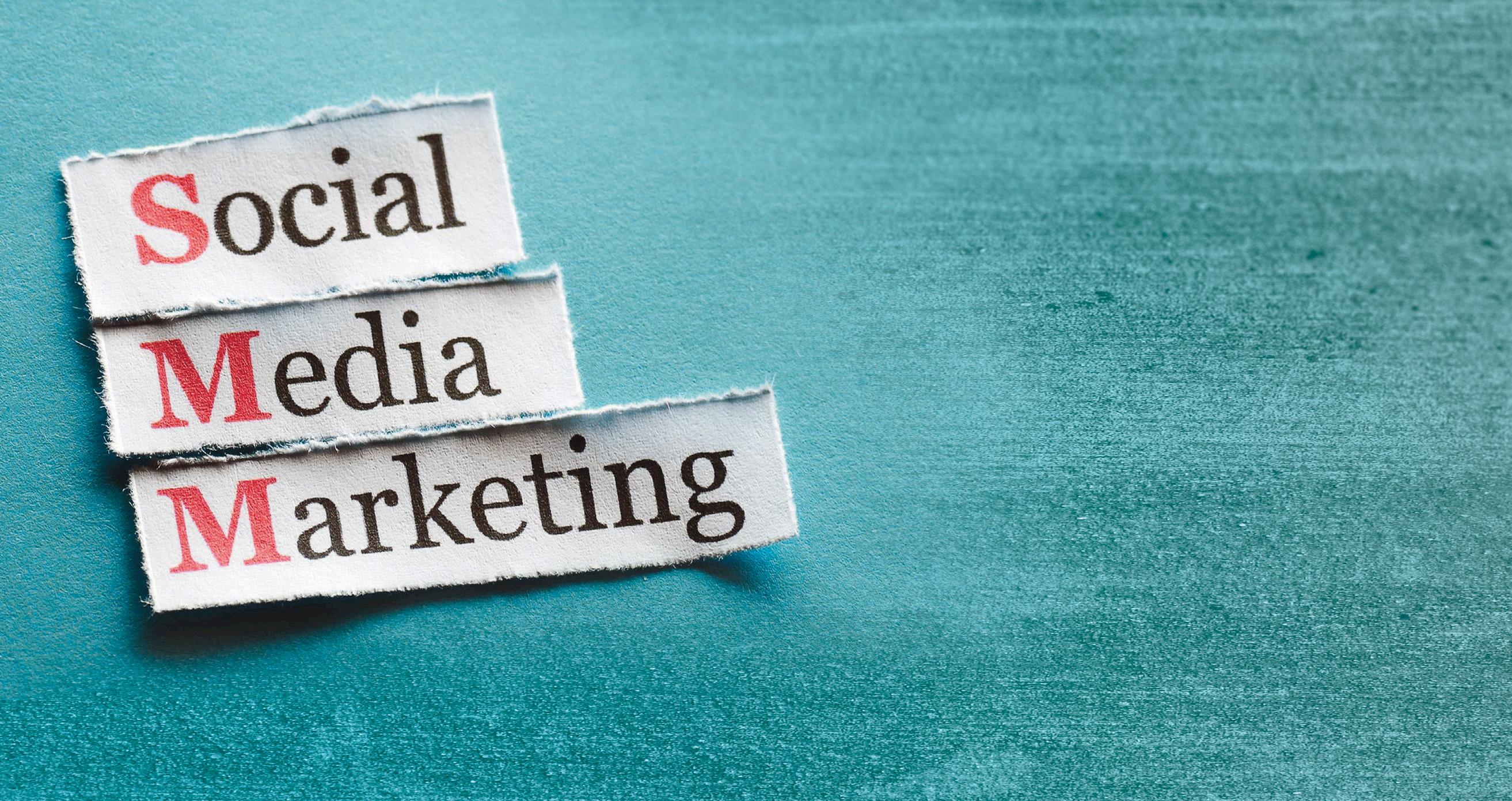
CORPORATE BRANDING
GRAPHICS AND WEB DESIGN
CONTRACT PUBLISHING
ARABIC TRANSLATION
PROFESSIONAL PHOTOGRAPHY
MEDIA AND PUBLIC RELATIONS
Most businesses in Bahrain lack advanced digital and social media marketing skills to expertly manage a successful digital strategy, so missing major opportunities they don’t even realize. The good news is we can inexpensively create an effective digital strategy for your business, and manage it for you, for less than the salary of an employee - freeing you to run your business. We also build beautiful websitesoptimized to generate income for businesses, and provide online services including SEO, design, e-commerce, photography and video production.
For a FREE evaluation of your businesses digital marketing needs. call +973 36 188 100 | 1700 4575





A few of our social media posts from last month. Don’t forget to like our Facebook page!

For the first time, Bahrain Confidential is conducting an online poll so the public can vote for their own favorite restaurants. Winning restaurants will be announced on 25th October, 2023.
To vote for your favorite restaurants, scan the QR code

Or Visit https://www.bahrain-confidential.com/best-restaurant-award/vote/
@bahrainconfidential

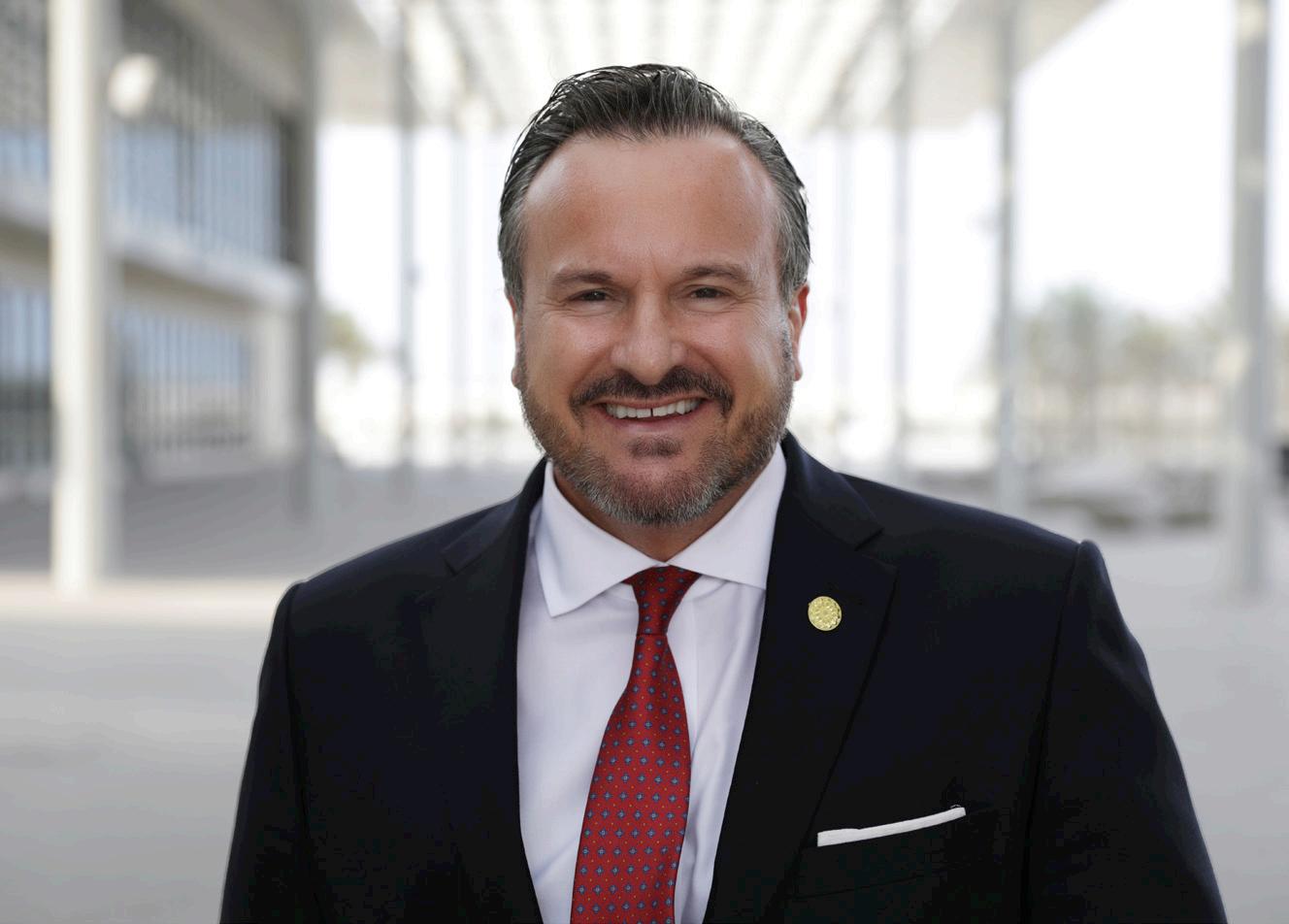
ranked first in the MENA in school life expectancy and has had a 6% average annual growth in student numbers in private schools. The numbers are very promising for Bahrain’s education sector, indicating that it will continue to be a major growth variable in Bahrain’s development.
However, as the education sector grows and adapts, ensuring academic quality is critically important for healthy national and economic development. Indeed, an education system is only as good as its graduates and the skills and competencies they actually take with them into their careers.
External accreditation is one such measure that provides important quality safeguards for educational institutions. However, what exactly is accreditation?
The American University of Bahrain recently achieved accreditation from the WASC Senior College and University Commission in the United States of America, becoming the first in Bahrain and among a handful in the MENA region to receive US accreditation. In this article, Dr Cook discusses the merits of accreditation in measuring and enhancing the quality of teaching and learning in higher educational institutions. For more information, visit www.aubh.edu.bh/
The Kingdom of Bahrain is home to the oldest public education system in the Gulf, and literacy rates are considered among the highest in the Arab World. The country has been
Accreditation is a process that provides external validation that a university meets or exceeds established standards for academic quality and institutional effectiveness. This is a voluntary process where an institution conducts an in-depth selfstudy against established accreditation standards. That self-study is then submitted to an independent certifying entity that reviews the study and then organizes a team of educational professionals to visit the campus to determine the level of compliance with established standards. Once a campus meets the academic and operational excellence necessary, the agency bestows accreditation on the institution for a bounded time frame, usually renewable every 5-7 years.
Earning institutional accreditation provides several social, public,
The Kingdom of Bahrain is home to the oldest public education system in the Gulf, and literacy rates are considered among the highest in the Arab World.
and educational advantages. First, accreditation gives students, parents, and employers confidence in the value of education and the qualifications earned. Second, accreditation ensures that credits earned at one institution can be transferred to another accredited institution. This allows students to move between institutions without losing credits or having to retake courses. Third, accreditation is often a requirement for universities to grant degrees that are recognized by other institutions and employers. This ensures that graduates have the necessary credentials to compete in the job market.
Fourth, accreditation also enhances a university’s ability to secure research funding from government agencies
and private foundations. This can support faculty research and student involvement in research projects. The American University of Bahrain recently achieved accreditation from the WASC Senior College and University Commission in the United States of America, one of the most well-known and respected accrediting agencies in the United States. AUBH is the first university in the Kingdom to earn US accreditation and is among only a handful in the MENA and GCC regions. This is a significant statement on the university’s commitment to high-quality academic and operational excellence which will translate into positive outcomes for students, faculty, industry, and the broader community.

External accreditation is one such measure that provides important quality safeguards for educational institutions.
John Maguire, Executive Headmaster of the British School of Bahrain highlights the ideal time to begin education, an introduction to the global PISA league tables and the importance of early years education.
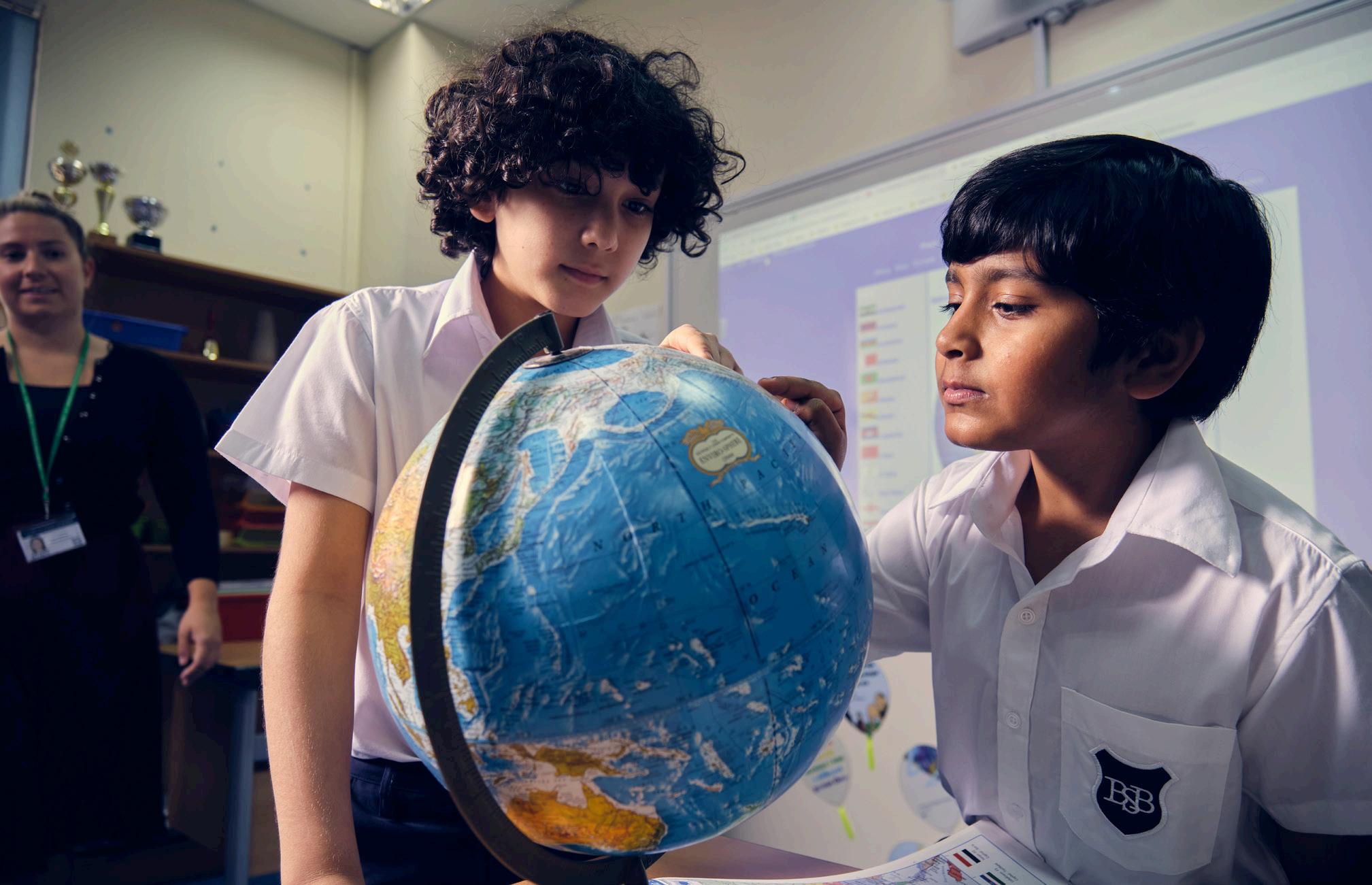
The question of when to start education is one grappled with by governments across the globe, and in every country, you will hear a different answer to this question. For parents, it is such a big milestone and a decision that is not taken lightly, this variation between countries only further confuses and conflicts an already difficult decision. So where can we search for the answer? Every four years, the Organisation for Economic Co-operation and Development (OECD) runs an international assessment of each country’s education programme
called PISA (Programme for International Student Assessment). This test measures a 15-year-old’s ability to use their reading, mathematics and science knowledge to meet real-life challenges. The tests are conducted in each country that elects to take part in PISA. Interestingly, Bahrain, alongside other GCC countries, has recently elected to take part in the next assessment cycle. Following these tests, OECD produces an in-depth analysis of spatial variations between countries, and a famous (or infamous) PISA global league table. The publication of this league table always creates much discussion and debate
among educationists and governments around all matters of issues, including the starting age of students enrolling in education.
One of the lasting shadows cast by the global pandemic is the impact of education on the youngest students. Of course, very young students did not access online learning as effectively as their older peers. Even within the regionally renowned schools, which offered the best online provisions available, there was a noticeable difference between the engagement of 3-year-olds and 16-year-olds. Now that education has returned to normal
in most countries worldwide, the number of students aged below 6 has surprisingly not yet returned to prepandemic levels. Should this concern us as a society, are we creating an educational problem for later, and should it concern parents who have elected to not start education as early as the pre-pandemic generation did?
OECD conducted research in 2019 into the longer-term impact of school attendance on children of Nursery and Reception age. They measured how these formative years established these children later in life and their academic proficiencies at the age of fifteen. By measuring attainment at age fifteen, they could correlate achievement with
those students who had attended enriching early years of education. The results of this research were released in January 2020 and showed that quality Nursery and Reception education makes a statistically significant difference to student attainment in the longer term; the key findings in this research emphasised the importance of the highest quality early years learning, as opposed to simpler childcare, such as at home nannies, to enable this positive effect.
So, when is the right age to start education? Of course, the response from outstanding schools such as the British School of Bahrain would be that students should join as early as possible

Children develop through experiences that shape their characters, sow the seeds of moral values and begin to form them as individuals.
and immerse themselves into a rich and stimulating learning environment that nurtures creativity and passion among our other values. However, there is more to education than just the formal learning that occurs in a classroom. Children develop through experiences that shape their characters, sow the seeds of moral values and begin to form them as individuals.

During the pandemic, due to lockdowns and social restrictions, many of these experiences were denied to students, and now post-pandemic, while academic progress can be restored, it will take much longer for experiences to be replicated, and through these experiences, students enabled to catch up socially and emotionally. Making connections and relationships, through enquiry-based learning, is at the centre of a great school’s Early Years approach – once a child starts thinking for themselves, they keep thinking for themselves, and this feeds directly into better literacy and numeracy; our creative and exploratory pedagogies in Early Years prepare children to maximise learning as they move up into the rigorous teacher guided curriculum. Furthermore, our education is based on creating experiences as well as nurturing excellence in the classroom.
To conclude, this debate will always continue, and following the next PISA league tables, it will be rekindled once more. What is clear is that an early years education that creates experiences significantly benefits students now and later on in life.
John Maguire, Executive Headmaster, British School of Bahrain



A Gulf Insider Exclusive Interview with Christian Gattiker, Head of Research at Zurich-headquartered Swiss Wealth Manager, Julius Baer
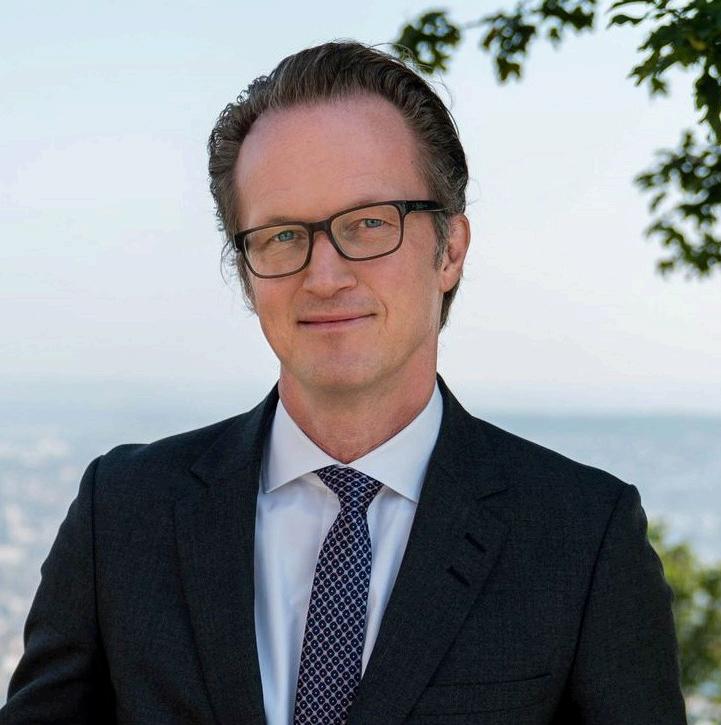
With a potential debt default in the USA, what impact do you think it will have on the world economy and the global financial system?
We think there will be a resolution and that both parties are conscious of the negative consequences even the technical default would have. This would trigger major mayhem in the global system. It’s hard to predict because we’ve never been there. So we can’t take any precedent and extrapolate. It would be a serious shock and not worth it.
As we enter a post-pandemic era, what sectors and industries do you believe are particularly promising for investment, and why?
There’s a tactical aspect to it because we’re in the midst of going into the
post-pandemic normal. We think 2024 will be the first year we can speak of the new normalcy and until then there are some cautious and some defensive sectors to be looked at. Healthcare for the time being seems to be a stable consumer franchise. However, big things are happening elsewhere as we speak that will be the main drivers of post-pandemic normalcy.
IT with the artificial intelligence breakthroughs is being discussed a lot and we suspect several big tech names to benefit from that. On top of that, there’s a major wave of investments coming into the energy infrastructure on a global scale. Be it the clean energy transition, engineering companies, utilities, and even insurance companies. All of them will benefit.
Considering the substantial growth in AI technology, how do you believe it will
change the investment landscape for both investors and professionals working in the industry, over the coming years?
It will reshape the world as we know it and most likely change the way we look at and analyze markets. The firepower on the investor side will get a lot better in terms of pattern recognition, forensic bookkeeping, accounting and so forth. So the transparency will increase massively which will allow us to better assess investments going forward.
On top of that, it will be very interesting to see how the various industries are affected and I would compare it to the introduction of electricity or the computer into the Economy in the 1970s. This will affect almost everybody for the better. There will be lots of efficiency gains and the question of how much will those companies be able to keep with their margins and it’s really both a breakthrough in looking and investing in the market.
What about the conversation about AI technology coming into place and replacing certain jobs? Do you believe there are going to be more jobs created to replace the jobs that are going to be potentially replaced by AI?
I’m quite puzzled by the narrative. On the one hand, we’re having this huge
discussion about replacing the baby boomer generation in many Western economies and a shortage of labour structurally. On the other hand, we have mass unemployment fantasies triggered by AI. I don’t believe that narrative is correct.
With the services sector which makes up 80% of the Western economy, a lot of lost human potential or capacity in the labour market will need to be replaced. There we’ll be able to witness massive AI breakthroughs, given the demographic situation of a lot of these economies.

So I wouldn’t paint it that black, but the process of getting there will create major hiccups, unrest, and uncertainty regarding the future.
Though the US dollar remains dominant in global forex reserves, there have
been calls for trade to be carried out in currencies other than the US dollar. Do you see this trend accelerating over the next five years?
It is still too early to call for a replacement for the US dollar as the reserve currency. Rather, what we are witnessing is a diversification in both trade and central bank currency holdings. While the US dollar currently accounts for about two-thirds of the whole trade volume, this figure has slightly decreased, and central banks are increasingly diversifying their holdings.
However, if we examine the extent to which they have replaced US dollars with gold, other currencies, or a basket of currencies, we are only talking about a few percentage points. We do not anticipate a significant decrease in the use of the US dollar or its status as the primary currency in the US capital market. Therefore, we see this as more of a diversification trend rather than a de-dollarization in both trade and banking sectors.
In your view, do you still see gold as a safe haven? How has its role as a hedge altered in recent years?
I believe that gold’s value remains unchanged as it is one of the best options to protect against geopolitical shocks. From a micro risk perspective,
It will reshape the world as we know it and most likely change the way we look at and analyze markets.
we view treasuries as good protection, while gold offers elastic protection against spikes during certain crises and instability in the financial system. Gold has done an excellent job in this regard. We also see the value of gold as a signal of investor confidence in the stability of the current geopolitical and financial status quo. Over the past three years, we have seen gold fail to break the 2000 level three times, suggesting that the current world order and global financial system are likely to remain intact. While it may be a more costly option, it remains a valid diversification
receive most of the cash flow through dividends and buybacks. This bodes well for supply discipline and cash flows, and we do not believe it signals the end of fossil fuels. Therefore, we expect some weakness due to cyclical and logical factors, but we anticipate stabilisation in the mid-seventies to eighties range for the crude oil price in the long term.
What are the key risk factors you foresee for the next five years?
I’ve been in this industry for over 30 years and I can’t recall a time when there has been such a focus on risk. In recent times, the major risk is geopolitical and I don’t believe that conflict will disappear anytime soon. Rather, the multi-polarities are in a state of flux, which makes it difficult for investors to predict the next move in this geopolitical landscape. There is also a concern about debt levels in many economies. If interest rates remain high, there may be discussions around government debt levels. The housing bubbles in the West have caused consumers to deleverage massively, but corporates are disciplined. Unfortunately, the government, particularly in the US and Europe, is now confronting debt levels that are unsustainable given current interest rates. Therefore, the biggest risks to financial stability in the next five to 10 years are geopolitical instability and government debt levels.
option for investors confronted with consistently devalued paper currency in many markets.

Oil has had its ups and downs in the last few months. How do you see the energy demand shifting in the coming months?
In the shorter term, the energy market is experiencing some contrarian trends that are difficult to predict. The current global economic slowdown, in terms of both growth and inflation, will likely put more pressure on energy prices in the short and intermediate term. However, we believe that the ongoing energy transition will have a significant impact over the next five to 10 years. Despite this, the traditional oil industry has shifted towards a repayment system where shareholders
When we spoke a year ago, we briefly touched on crypto. What are your opinions on Bitcoin currently?
I don’t have a specific tactical recommendation for this particular currency or digital gold, but I do believe that blockchain technology will revolutionise the way we run our economic system. The ongoing Bitcoin discussion and its evolution give us a glimpse into where this technology is leading us. While I’m not convinced that it will entirely replace traditional money, it gives us an idea of what to expect from blockchain and its applications in the real economy.
I believe that gold’s value remains unchanged as it is one of the best options to protect against geopolitical shocks.
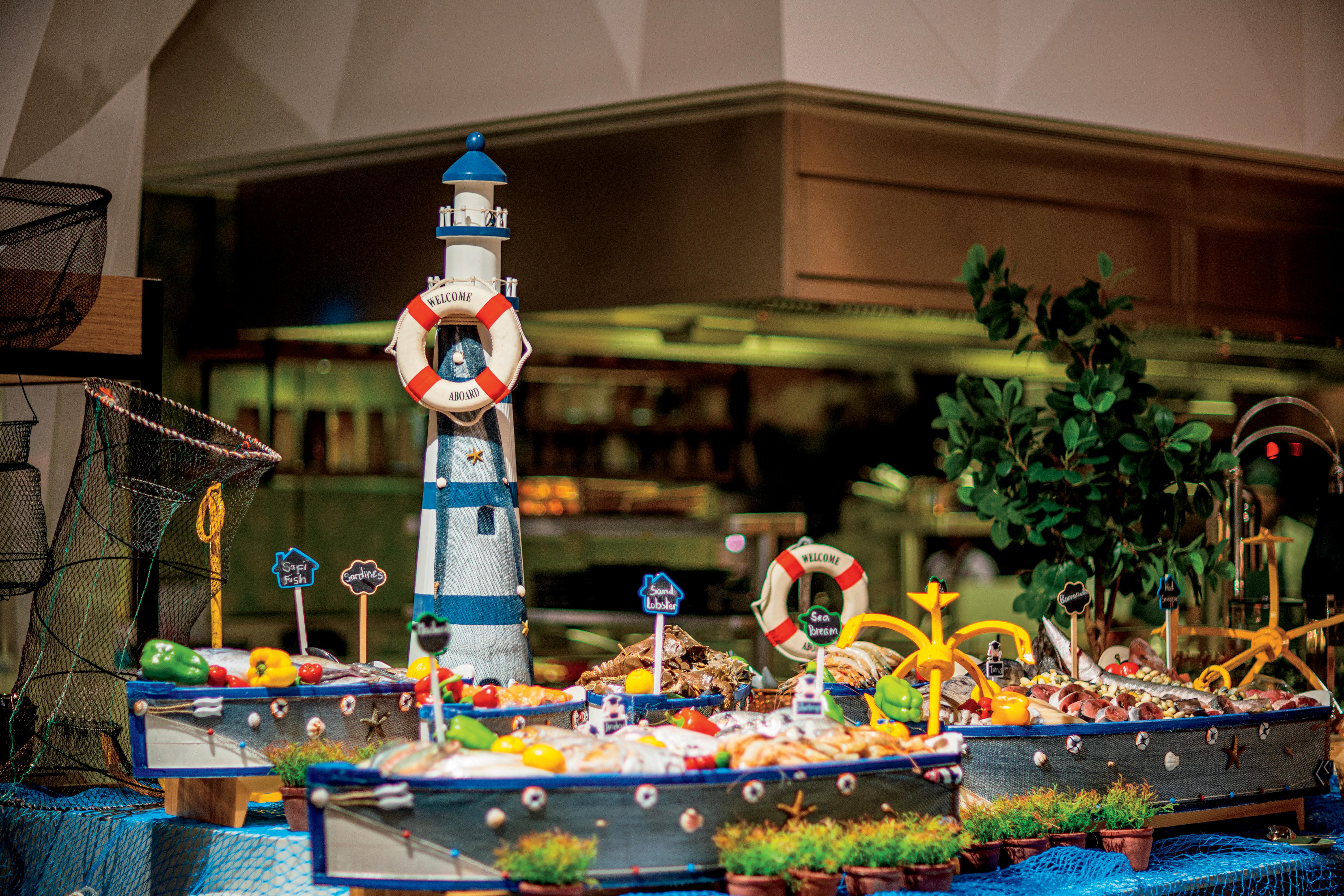







Nowadays, the United Arab Emirates’ incorporation process has evolved to be one of the simplest and most straightforward jurisdictions to incorporate a company. New laws favourable to foreign investors were implemented and digitalization had been embraced by the authorities for efficient and modern government service.
Due to UAE’s stable economy and government, the country became an ideal place for many foreign companies in the field of e-commerce, construction and infrastructure, tourism, real estate, health, hospitality, marketing, hotel and restaurants and consultancy services.
The following factors must be considered before establishing a presence in UAE:

1. Mainland vs Freezone and activity
2. Law updates
3. Incorporation process and challenges
Foreign investors may opt to establish their companies either in the Mainland or Freezones.
A Mainland company is registered under the Department of Economic Development. The status quo allows 100% ownership by a foreign investor
if the legal form is a limited liability company. This is applicable to all activities, whether commercial (e.g., trading, consumer supplies) or industrial (e.g., manufacturing and production of goods). Furthermore, external approval is required for professional activities (e.g., legal advisors, engineers, medical experts, etc.).
Another common legal form in the Mainland is a branch or representative office. A branch or representative office will require a local service agent to facilitate the administrative procedures with the authorities per se in exchange for an annual fee. The said agent is not a partner in the company nor has decision-making power.
On the other hand, full ownership
regardless of activity and legal form is being offered by more than 40 multidisciplinary free zones in UAE. Free zones have their own independent laws and regulations.
Legally speaking, a company licensed from a free zone jurisdiction must operate only within the free zone and outside the UAE, whereas a company licensed in the Mainland can perform the activities anywhere in the country.

According to the Federal Decree, Law No. (26) of 2020 that amended some provisions of the earlier Federal Law No. (2) of 2015 regarding ownership of commercial companies onshore effective 1st June 2021, we can conclude that both Mainland and Free Zones may offer Limited Liability Company (LLC) and Branch of Foreign Company options with complete foreign ownership.
UAE will introduce Federal DecreeLaw No. 47 of 2022 known as the Corporate Tax Law by 1st June 2023. Accordingly, a 9% corporate tax rate is applicable should the company’s taxable profit will exceed AED 373,000. The
said rate is one of the lowest in the world. It is expected that all companies in UAE must comply with the new tax regulations.
The new labour law in the UAE Mainland became effective on 2 February 2022. Federal Decree-Law No. 33 of 2021 on the Regulation of Labour Relations in the Private Sector aims to protect both employers and employees to uphold their rights in a balanced manner. A Freezone has its own labour law and some free zones in case of conflict refer to the Mainland’s labour law.
Generally, a company can be incorporated in UAE between four (4) and six (6) weeks reckoned from the submission of original documents that are notarized, apostilled, and stamped by the UAE Embassy. Some of the Free zones like Abu Dhabi Global Market had dispensed with the notarisation and legalisation requirement. Other Free Zones are allowing for the incorporation within 10 working days, thereafter, the release of the license with the
UAE will introduce Federal DecreeLaw No. 47 of 2022 known as the Corporate Tax Law by 1st June 2023.
condition that original documents will be submitted within 60 days. Thus, regardless of jurisdiction, UAE authorities adopted various measures to assist foreign investors to speed up the incorporation process.
Upon completion of the incorporation, the opening of a corporate bank account in the UAE can be a time-consuming process especially if the company structure is complex. It is advisable that foreign investors will open their corporate accounts with the same international bank in which they have already a well-established relationship to expedite this process.
Basic processes and requirements for the incorporation of a company in the UAE:
1. Choose your legal form by considering the activity of the entity to be established and the target market
2. Application for registration must be submitted before the Department of Economic Development for Mainland or Registration/Licensing Authority in the Free Zone
3. Initial approval application from the relevant authorities
4. Registered office location must be selected
5. A corporate bank account must be opened
6. Residence visas and work permits for staff must be obtained
Considering that there are options and opportunities available in the UAE market, the challenge is for foreign investors to determine and be fully aware of the activities and target market of the business. This will ensure that the company is in the right jurisdiction, compliant with the correct activity and will be able to deliver the service or products to the right target market.

Stewart Adams is TMF Group’s market head of Middle East and Africa. He has over 25 years of experience in consulting and financial services in Europe, the Americas, Pakistan, Asia and the Middle East. His experience covers asset management, asset servicing, consulting, company incorporation plus tax and trust structuring.
With his 12 years of experience in the Middle East, he has developed a deep understanding of the region and the unique way to work with clients, regulators, and authorities.
In his current role as Regional Managing Director, Middle East & Africa, TMF Group he oversees strategy, client service, product, and business development plus P & L responsibilities and relationships with regulators, intermediaries and authorities. In addition to these roles, Stewart sits on multiple Boards in over 10 jurisdictions.
TMF Middle East & Africa is the largest Corporate Service Provider in the region with over 450 staff located in Dubai, Abu Dhabi, Israel, Cape Town, Johannesburg, Mauritius, Egypt, Turkey, and Saudi Arabia.
Generally, a company can be incorporated in UAE between four (4) and six (6) weeks reckoned from the submission of original documents.
Dubai aims to enhance the standard of luxury living in Bahrain. Design consultants such as AAP Design Construction are collaborating on the development of the project. Parallel to Marina Bay’s development, Infracorp has begun the second phase and completed the first phase of the Marina project at Bahrain Harbour.
“We’re proud to keep delivering important real estate projects that have helped Bahrain’s property and city development. We’re working in line with the government’s plans for economic growth and tourism for 2030,” said Majed Al Khan, CEO of Infracorp.
Infrastructure development investor, Infracorp launched Marina Bay – a whopping $200 million investment project nestled in Reef Island, off the Northern Coast of Manama.

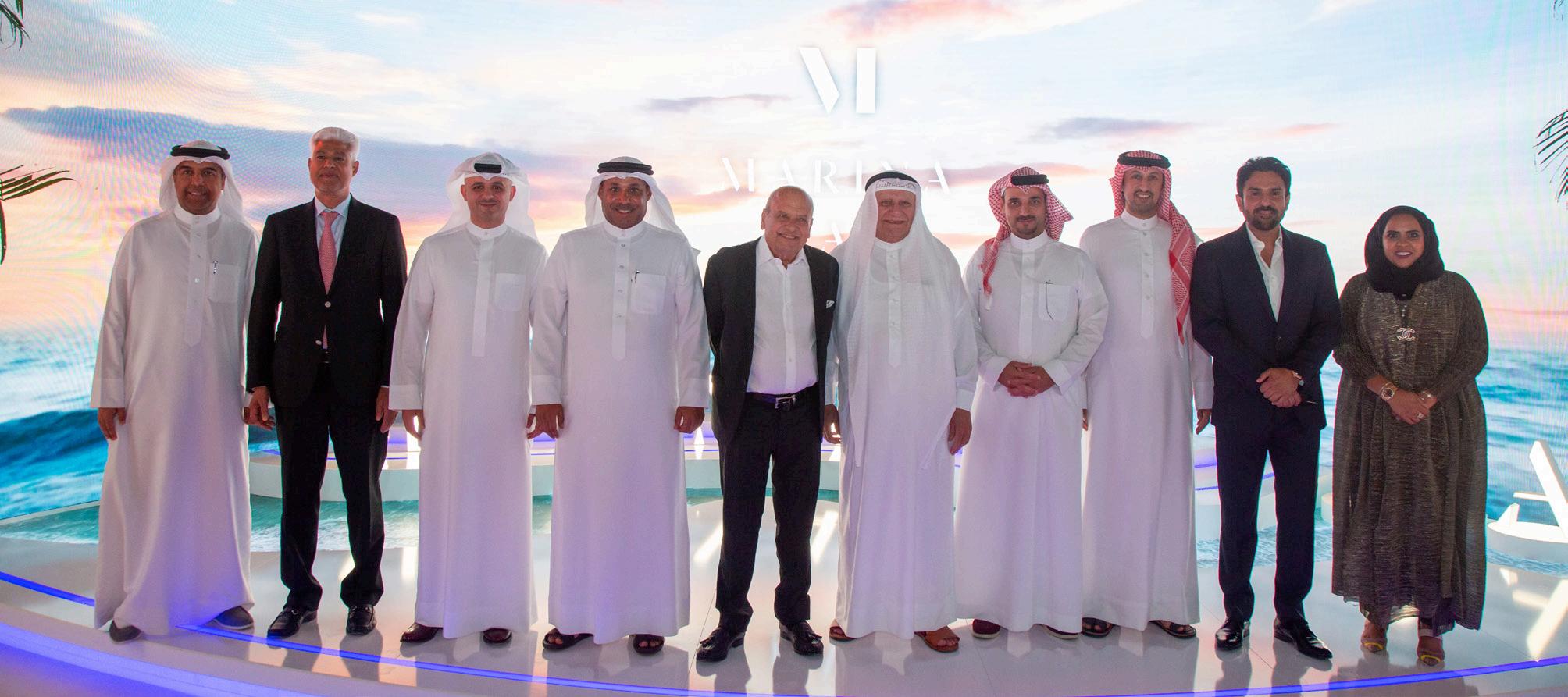
On Saturday, 17 June, Infracorp hosted a launch event at the National Theatre of Bahrain to announce the
specifics, timeline, and development phase of the Marina Bay project.
The event saw Mr Hisham Alrayes, Chairman of Infracorp, and Mr Majed Al Khan, CEO of Infracorp, joined by guests and members of the media.
The project, coming on the heels of Infracorp’s recent successful completion of the California Village Residences in
Al Khan also said, “Our success comes from the unique investment and rules of the Kingdom, which keep shaping the tourism and real estate sectors. This helps the economy grow with our different investment opportunities.”
He added, “The Marina Bay project is part of Infracorp’s plans to grow in the real estate sector by creating sustainable big projects across the region.”
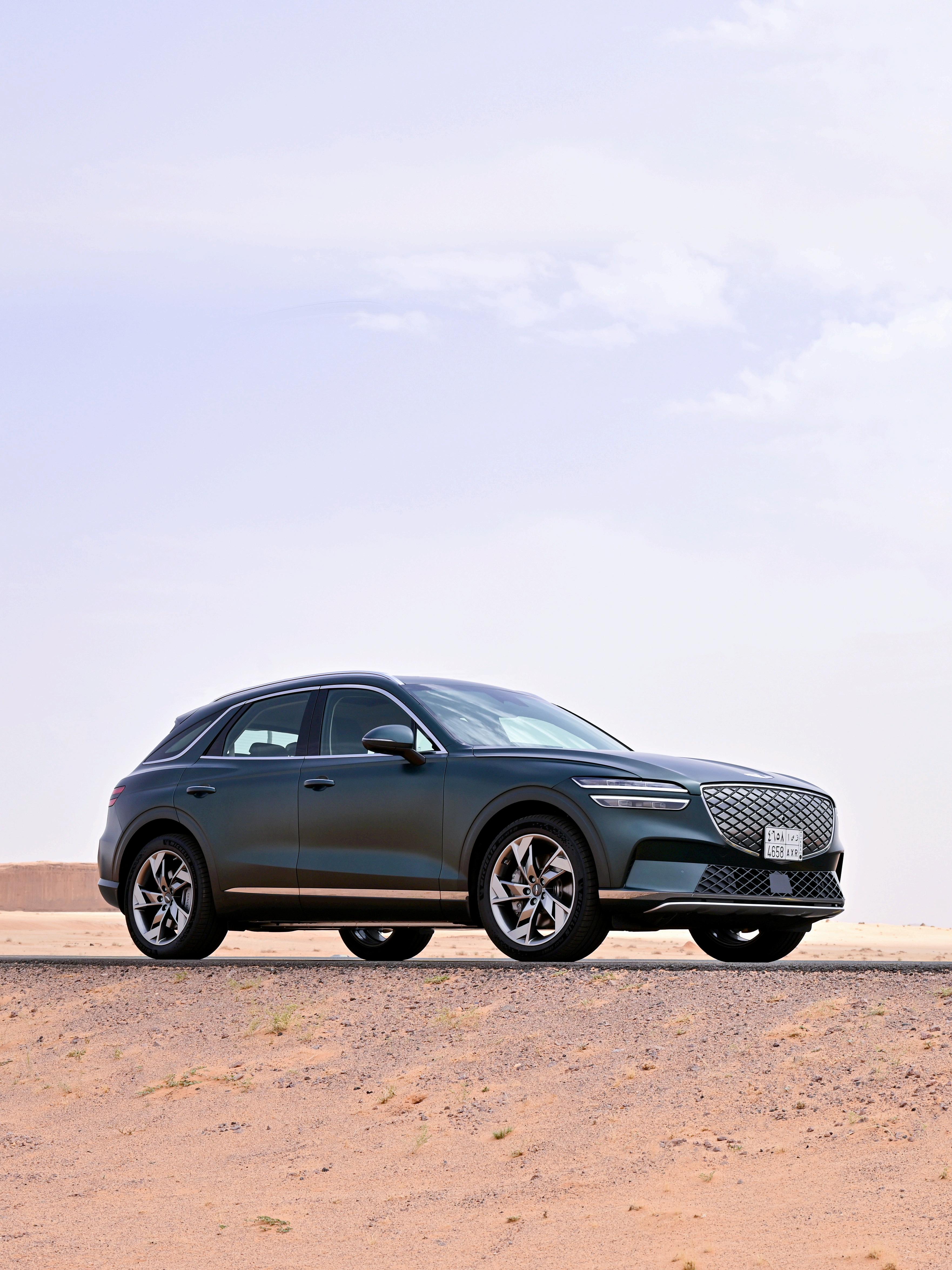 Written by Charlie Cooksey
Written by Charlie Cooksey
Genesis, the luxury car brand from South Korea, recently launched three new fully electric vehicles in the Middle East: the GV60, Electrified GV70, and Electrified G80. I was invited to the regional launch and drive at a special event in AlUla, Saudi Arabia. I was impressed by not just the cars, but also the location. AlUla is a beautiful, UNESCO World Heritage Site with ancient ruins and stunning natural scenery that sometimes appears like a Martian landscape. Add to this brand
new perfectly constructed roads and highways, and it was a perfect setting for this Genesis launch.
All three of the new Genesis vehicles are sure to compete with the best in the luxury car market, which is now getting seriously competitive. The established German brands are under threat since the Koreans are knocking out some high-quality good products, and now also in the world of electric cars.


The G80 is the luxury sedan that collected me from the airport and ferried me on the 90-minute journey to and from the Genesis event as a passenger in AC-chilled comfort (it was very hot in Al Ula!). Its dual-motor all-wheel-drive system produces 375 horsepower and 516 lb-ft of torque, giving it a 0-100 kph time of 4.5 seconds, and an estimated range of 424 km. Its luxurious cabin features premium materials and finishes and it comes with a long list of advanced safety and driver-assistance features.
I spent most of my time with the GV60 which I found the greatest fun to drive. Genesis describes the design of the GV60 as a coupe crossover utility vehicle (CUV), and it offers a range of up to 466 km on a single charge. It is powered by a dual-motor all-wheel-drive system that produces 314 horsepower and 446 pound-feet of torque.
The GV60 can accelerate from 0 to 100 kph in 4.5 seconds. The top-ofthe-range version does 0 to 100 in a blistering 4 seconds! There’s also a ‘Boost’ button that, when pressed, enables up to ten seconds of extra acceleration – very useful when overtaking in tight conditions.
This is a stylish and sporty car with high-quality materials and finishes. It certainly has the ‘wow’ factor for those sitting inside viewing its futuristic design layout. I loved the crystal sphere handle that spins like a beautiful piece of futuristic artwork when the car is switched on. It also reveals to the driver
All three of the new Genesis vehicles are sure to compete with the best in the luxury car market, which is now getting seriously competitive.
when the electric engine is off – more useful than it may sound to those who have never driven an electric vehicle. For some EVs I have driven in the past, it can take a moment to figure out whether the car is switched on.
Further innovative features include Face Connect door locking, which allows users to open doors by registering their faces on a camera placed on the B-pillar, and a Fingerprint Authentication System that enables driving the car without a key.
Onto the electrified GV70, which I only spent a short amount of time driving, it’s a handsome machine, identical to the original combustion GV70 in design, and offers a bit more space than the smaller GV60. It’s a midsize SUV that offers a range of up to 450 km on a single charge. It is powered by a single-motor rear-wheel-drive system that produces 225 horsepower and 258 pound-feet of torque.
The GV70 is a more traditional SUV than the GV60. It has a more conservative design, though the Electrified GV70 is the first Genesis
model to feature the SUV-specific e-Terrain Mode, ensuring a stable driving experience in variable environments.
This trip was incredibly well organised and not only did I get to experience the 3 new EVs from the luxury Korean brand but learned so much more about Genesis as a brand and their vision. It was fascinating spending time and talking with the product team and brand leaders at various activities and dinners during the event.
I am now especially looking forward to taking the GV60 for a drive on the roads I know in Bahrain!
The GV60, GV70, and GV80 are available now in the Middle East. Prices start at $59,290 for the GV60, $68,290 for the GV70, and $70,850 for the GV80.
If you are interested in learning more about the new Genesis vehicles or would like to schedule a test drive, please contact the Genesis dealership in Bahrain – First Motors.
Phone: +973 17 121 121
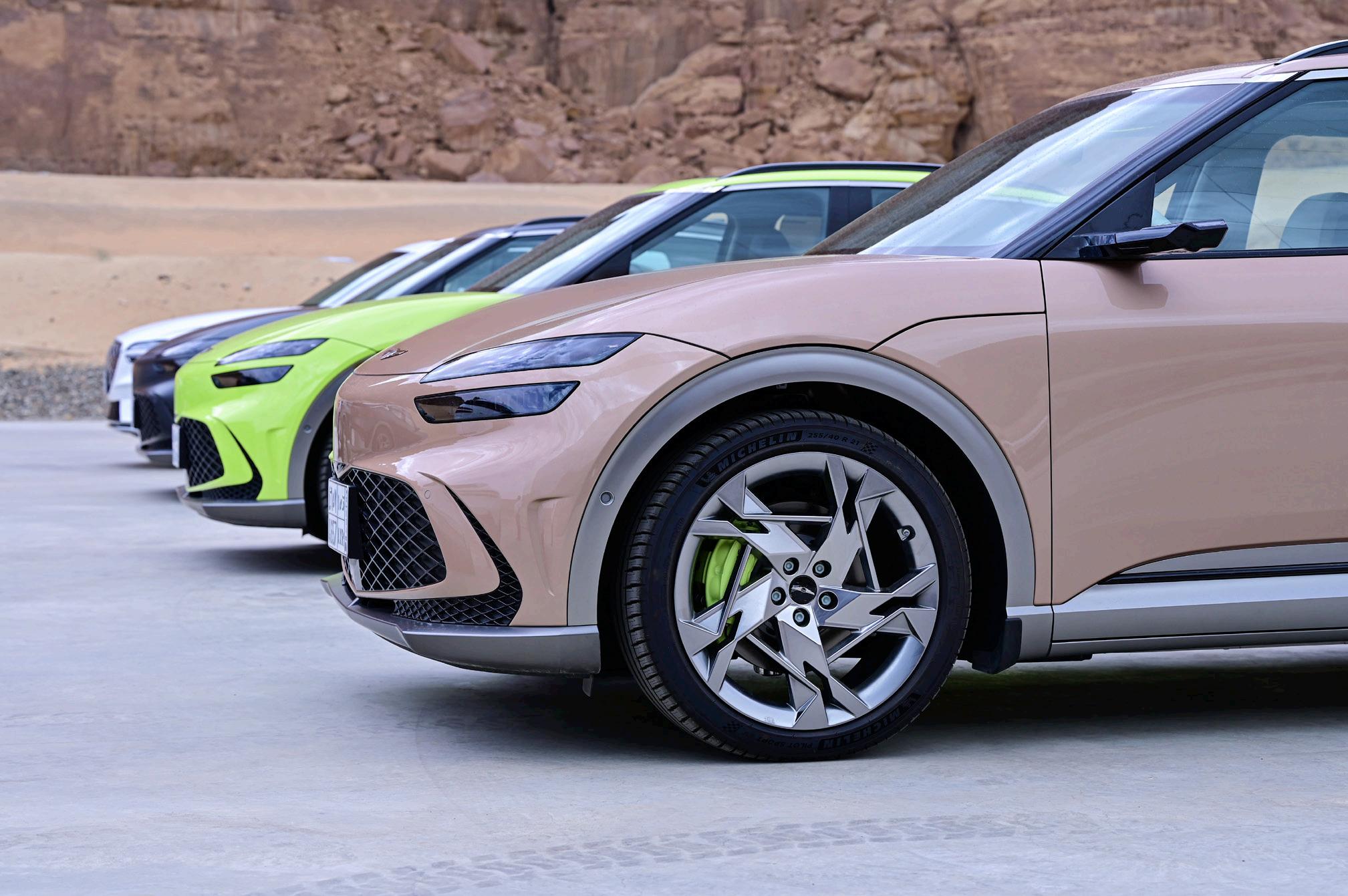
Further innovative features include Face Connect door locking, which allows users to open doors by registering their faces on a camera placed on the B-pillar.

The luxury brand’s first fully electric vehicle is unmistakably powerful and designed for the future!
Charlie Cooksey drives the new Porsche Taycan Turbo Cross Turismo

In 2003 Porsche shocked the motoring world with its move from being purely focused on manufacturing high-performance two-door sports supercars with the introduction of the Cayenne, the company’s 4-door high-performance SUV – that went on to become a huge commercial success. Much later came the Panamera, a luxury four-door highperformance sedan, and more recently Porsche announced the launch of the brand’s first-ever fully electric car – the Taycan.
Taycan, a word I’d never heard of before until this car was first announced in 2019, is a Turkish-derived name which apparently roughly translates to ‘spirited young horse’ and is pronounced (as it is spelt) tay-can.its: Aigul Nigmatullina
Fast forward to 2023 and Porsche is here with the Porsche Taycan Turbo Cross Turismo, quite a mouthful compared to other models of the brand such as the ‘911’ or ‘Macan’. This latest model is the long-roof station wagon alternative to the Taycan sedan.

During one of my regular business trips to Dubai, this was the car Porsche Middle East kindly provided me with to scoot around the Emirate in. I had it for 3 nights and enjoyed every minute.
I’ve driven numerous EVs from different brands, so you could say I’ve adjusted to them and I have gone from not liking EVs, to now truly loving and appreciating them for the new and exciting technology they offer.
The Taycan Turbo Cross Turismo looks sexier than the Coupe (in my humble opinion). I’ve had a bit of a ‘thing’ for the station wagon design since being introduced to Audi’s blisteringly fast RS6 Avante, and lately with BMW’s recently launched M3 touring.
Back to Porsche, the Taycan Turbo Cross Turismo might be fully electric but there is no shortage of power. Quite frankly, it has an insane amount of power, far more than I was able to use on the roads of Dubai. 562 horsepower and 0-100 kph in just 3.3 seconds. This thing drives like a Porsche and leaves you grinning ear to ear with sweat on
Inside the car, it is comfortable and clearly a Porsche. Everything is premium, solid and feels expensive with all sorts of luxuries and personalization options.
your forehead. When flooring it from zero it feels like you’re operating from the inside of an almost silent missile. Unlike the 911 it doesn’t give the roar of the flat-6. Instead, there’s a strangely calming electronic humming sound.
It looks as good as it drives. One morning at the lobby of the Palazzo Versace hotel where I was staying, I handed my valet ticket over and waited for the vehicle to arrive. When it did, it attracted far more attention from people than any of the arrays of Italian and British supercars parked outside the hotel. Whether this was because of the car’s gorgeous look or because of the new-found fascination with electric cars, I don’t know.
It has a very futuristic design. I wasn’t overly keen on the front design when I first saw it on social media, however, it is one of those things that you can only really like and understand when you see it in person. It’s stunning.
Inside the car, it is comfortable and clearly a Porsche. Everything is premium, solid and feels expensive with
all sorts of luxuries and personalization options. Oh, in case you hadn’t already guessed – it IS an expensive piece of kit with a starting price of BHD 42,686 (incl. VAT).ture Credits: Aigul Nigmatullina

There’s a standard four-seat configuration or an optional five-seat setup, achieved by adding a small centre seat in the back row. Compared to the sedan there’s slightly more headroom in the front and lots more in the back. There’s also much more cargo space.
To conclude, it’s the most powerful EV I have driven to date. I was impressed from the moment I first saw it upon collection. Beautifully designed, it attracted a lot of attention and questions from friends. As a sports car, exceptional handling (as expected from Porsche), is frighteningly fast and comfortable. Despite its sportiness, I would happily drive this as a daily.
To arrange a test drive in Bahrain, contact Porsche Bahrain at +973 1745 9911
It’s the most powerful EV I have driven to date. I was impressed from the moment I first saw it upon collection.Picture Credits:Aigul Nigmatullina
Gulf Insider is the first and currently the only Bahrain based business magazine that has strong online presence in terms of website and social media.


464k
FOLLOWERS
25.3k
Numbers matter. 1 million views every month, and still going strong! Your business deserves to be here.
Gulf-Insider.com
A WHIRLWIND TOUR OF GERMANY FROM THE MIDDLE EAST: THE COUNTRY WITH SOMETHING FOR EVERYONE
 Written by Charlie Cooksey
Written by Charlie Cooksey
With a vibrant air that is rich in history that brings you to medieval ages all intertwined with a modern flourish; Germany is a must-visit country. The lively culture and variety of regional distinctions allow for the opportunity to have a unique and exciting experience in every city and town.
I jumped at the chance to tour three distinct parts of Germany. Each beautiful in its own way, my journeys through this quaint European gem took me to Stuttgart for one night, Baden-Baden for two nights, and Essen for three nights. From the Middle East, it’s an excellent location for a holiday, offering something truly special to every type of traveller.
Perhaps you’ve heard the jokes about Germans being on time and precise, and I can assure you, this is no joke. If you value timeliness and orderliness,
you will feel right at home in Germany. Everything I experienced from the trains, tours, and metro services is always right on the dot with the ETA.
During my trip and time with the German Tourism Board, they made strong efforts to reveal the nature-rich country, more so than the notorious German cities most people are already aware of. I was impressed by this whole new side of Germany which I had never seen before or was even aware of.
There was a focus on sustainability
and “eco-friendliness” during this trip by use of Germany’s excellent public transport system to cart around the country and its cities. I also found that ‘Lime’ scooters offer a fun and quick way to affordably get around cities. At just 6.99 Euros for 60 minutes, it’s both cheap and sustainable and makes for a great way to take in the new surroundings of whichever city you’re in. What also surprised me about Germany is that the food is delicious. Other countries are often hailed for their cuisine, and after visiting, I think Germany deserves far more praise for its incredible cuisine.
Now, let’s get on with the cities and what you’ll want to discover in them.
If the name of this city sounds familiar, that is because it is the home to Porsche and Mercedes. This industrialbased town with a similar format to San Francisco with roads that wind up

I was impressed by this whole new side of Germany which I had never seen before or was even aware of.
and down would likely be the last place you’d expect to find good wine. In fact, wine from Germany isn’t something I’d even given much thought to before.
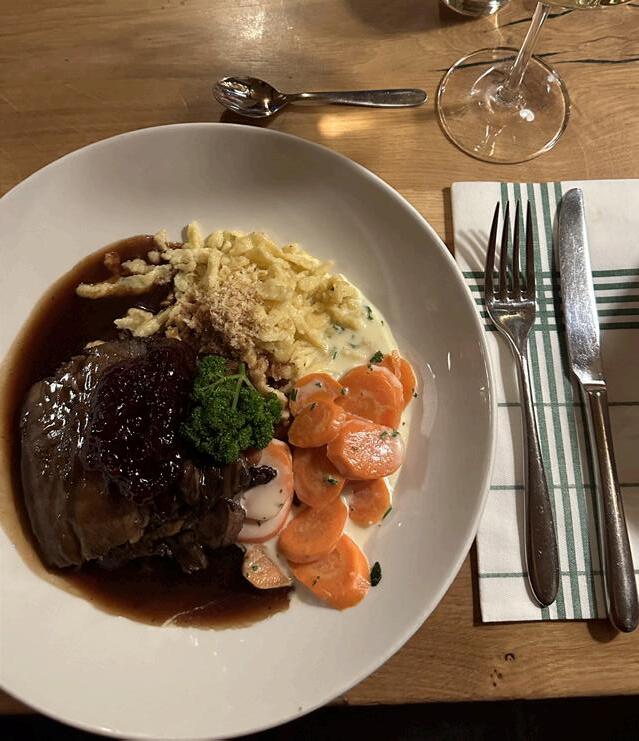
Yet, that’s precisely what you’ll find here as Stuttgart is Germany’s biggest wine-producing city. A trip to the Weingut Diehl vineyard was a sublime way to partake in the wines and offered stunning surroundings to envelop us as we sipped the selections.

Another fascinating thing about Stuttgart is that there are well-preserved homes from the 1800 and 1900s. In the war, most of Stuttgart was blown to pieces and these relics are among the few buildings that remain from this era. Stuttgart is rich in history.
During my short stay in Stuttgart, I also visited the Bauhaus Museum. This creation consists of two semi-detached homes crafted in 1927 by Le Corbusier and Pierre Jeanneret. It remains the only Weissenhof Estate building that is open to visitors and earned a lot on the UNESCO World Heritage Site list.
On to Baden-Baden where they say it’s a city so nice that they named it twice. This quiet and calm city is the perfect respite, especially if you feel a bit washed-out from your travels. Baden-Baden was the highlight of my trip. It’s picture perfect and full of stunning European architecture.
The name comes from Baden in Baden which means water or bath, but they didn’t want confusion with cities like Vienna. And with that, it’s well worth visiting the spa quarter and thermal baths.
Promoting wellness through these restorative thermal waters, they bubble from 2,000 metres below at temperatures up to 68°C. Brimming with healing minerals, it is the ultimate experience in Baden-Baden. You can use the baths without the need for anything else. It’s just 35 Euros and they provide everything you need. It’s great for when it’s wet and rainy to soak all your cares away.

My six-day tour of Germany was a whirlwind of unique experiences, adventure, meeting interesting people and eating plenty of food I’d never tried before.
While Essen is popular with European tourists, few overseas travellers knew of its existence. Until now, that is. With abundant opportunities for recreation in the fresh air and its own slice of unique German culture and hospitality, I truly enjoyed finishing the last leg of my Germany trip here.

Named the green capital of Germany in 2017, it is the city of contrasts, a place that is as excellent for hiking as it is feasting. In fact, after a particularly long and neurotic hike, we stopped mid-way for a beautiful and delicious lunch at Jagdhaus Schellenberg, which boasts a spectacular biergarten accessible from April through October, weather depending, in the afternoons from Wednesdays to Fridays and on weekends and holidays. The menu offers delectable foods and even offers a vegetarian selection.
My journey was almost complete, with a last stop at the Krupps house. Residing on the outskirts of Essen, set beside railway tracks, you’ll find The Villa Hügel as it is known, a home built in the early 1870s as the residence for a famous German steel family. Since the entire country has always been famed for manufacturing and engineering, seeing the house of the Krupp family was an excellent way to complete my journey.
My six-day tour of Germany was a whirlwind of unique experiences, adventure, meeting interesting people and eating plenty of food I’d never tried before. It was all so eye-opening. I strongly recommend exploring this great country – with so much to see, be sure to give yourself an ample amount of time to check out different cities and regions; made so easy with the excellent public transport system. On this 6-day adventure, I saw plenty, yet there is still so much more to see.
To learn more visit:
www.germany.travel/en/home.html
